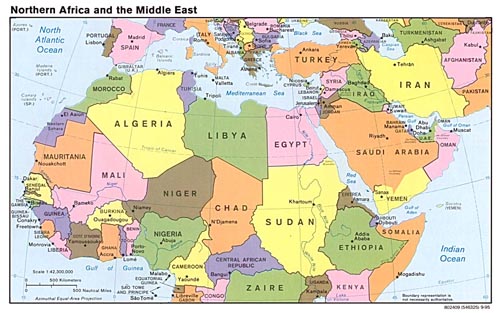
U.S. busts Hezbollah terror group’s drug, money laundering scheme
(JNS.org) The U.S. Drug Enforcement Administration (DEA) announced Monday that an international operation has led to the arrests of members of a Hezbollah terror cell in Europe involved in drug trafficking and money laundering.
According to the DEA, the Lebanese terrorist group uses the money it makes from the sale of cocaine in the U.S. and Europe to fund the purchase of weapons for use in Syria, where Hezbollah is fighting to preserve the regime of Syrian President Bashar al-Assad.
A DEA statement said the “ongoing investigation spans the globe and involves numerous international law enforcement agencies in seven countries, and once again highlights the dangerous global nexus between drug trafficking and terrorism.”
The DEA said Hezbollah members have established business relationships with South American drug cartels.
“These drug trafficking and money laundering schemes utilized by the Business Affairs Component [of Hezbollah] provide a revenue and weapons stream for an international terrorist organization responsible for devastating terror attacks around the world,” DEA Acting Deputy Administrator Jack Riley said.
Among those arrested, the most prominent figure was Mohamad Noureddine, whom the DEA described as a “Lebanese money launderer who has worked directly with Hezbollah’s financial apparatus to transfer Hezbollah funds via his Lebanon-based company Trade Point International S.A.R.L. and maintained direct ties to Hezbollah commercial and terrorist elements in both Lebanon and Iraq.”
*
Hamas operatives pose as medical patients to enter Israel
(JNS.org) Two Hamas operatives were arrested by Israeli security services after posing as medical patients in order to enter Israel, authorities revealed Monday.
The two operatives, 31-year-old Mahmoud Matok and his 52-year-old father of the Jabalya refugee camp in Gaza, entered Israel on forged medical documents on Jan. 7. They later escaped from the hospital and traveled to the Israeli Arab community of Umm al-Fahm in northern Israel, where they were arrested, said Israel’s Shin Bet security service.
During their interrogation, the two confessed to using a relative’s medical condition by posing as that relative to gain medical attention in Israel. They paid NIS 7,000 ($1,777) for the forged documents.
“This is a serious incident that illustrates the cynical exploitation of Israel’s willingness to meet the humanitarian needs of Gaza’s residents, which could lead to a tightening of entry regulations, and ultimately harm the residents of the Gaza Strip,” a Shin Bet official told the Jerusalem Post.
*
Iran gains access to $100 billion in sanctions relief
(JNS.org) The Iranian government said on Monday that it has now gained access to more than $100 billion of frozen overseas assets as part of the sanctions relief promised under the nuclear deal signed last summer with world powers.
“These assets have fully been released and we can use them,” Iranian government spokesperson Mohammad-Baqer Nobakht said, Iran’s state-run Press TV reported.
According to Press TV, much of the money that had come from international sales of Iranian oil had been piling up in banks in China, India, Japan, South Korea and Turkey. Those countries have been holding the funds in escrow since sanctions were implemented in 2012.
Additionally, several Iranian banks were reconnected to the Belgian-based SWIFT financial transaction system that handles wire transfers between financial institutions.
Many Israeli officials, as well as Arab states like Saudi Arabia and the United Arab Emirates, fear that Iran may use these funds to pay its terror proxies such as Hezbollah or the Houthi rebels in Yemen, which could in turn destabilize the Middle East. Furthermore, officials and analysts fear that Iran could also use the money to develop its ballistic missile program.
*
Israeli biotech firm installs renewable energy unit at Ugandan orphanage
(JNS.org) Israeli biotechnology company, Homebiogas, recently installed the first bio-digester system that turns organic waste into clean renewable energy at an orphanage in Uganda.
“These children lit up when they discovered the HomeBiogas magic—that they can transform their waste and produce their very own energy,” said Yair Teller, HomeBiogas chief scientist and cofounder, Israel21c reported.
The biogas system is family-sized, converting kitchen leftovers and animal manure into cooking gas lasting three hours a day. In addition, the system generates a high quality liquid fertilizer through anaerobic digestion of the waste.
The bio-digester is increasing its popularity across the globe.
“We’ve received orders from various distributors in many countries, such as Australia, Nigeria and Costa Rica, that want to set up demo installations,” said Ami Amir, who heads marketing and business development for HomeBiogas. “About 70 different countries are interested in establishing distributorships. So evidently we are answering a need.”
Homebiogas raised 200 percent of its $100,000 goal in an Indiegogo crowd-funding campaign. The system will retail at $1,500.
*
Articles from JNS.org appear on San Diego Jewish World through the generosity of Dr. Bob and Mao Shillman.